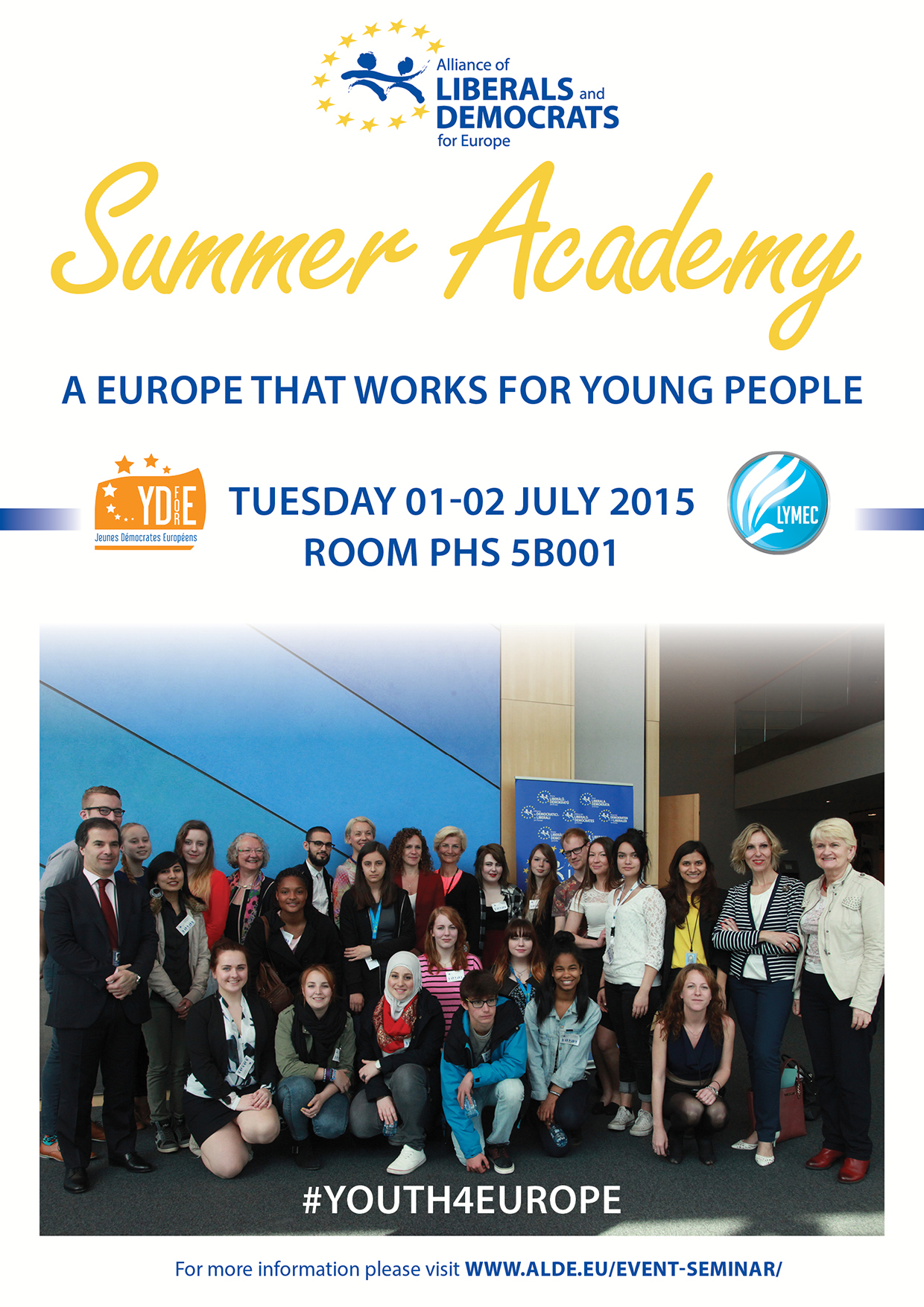Université d’Été de l’ADLE | 1&2 juillet
L’édition 2015 de la Summer Academy du Groupe ADLE vise à expliquer ce que le groupe parlementaire représente et à débattre des solutions afin que notre continent prospère et que les jeunes aient un travail. Cela sera aussi l’opportunité de comprendre comment la galaxie ADLE fonctionne pour nous : le Groupe au Parlement européen, les 2 partis politiques européens (PDE et ALDE party), ses fondations politiques (IED and ELF), ses organisations de jeunesse, mais également le Groupe au Comité des Régions.
Nous souhaitons fournir les instruments afin de comprendre et de faire face au problème qui touche le plus notre génération : le chômage. Pour ces raisons, des problématiques telles que la fuite des cerveaux, la mobilité, les accords de libre-échange, l’entrepreneuriat et l’apprentissage seront abordées. Pendant ces deux jours de travail intensif, les jeunes Démocrates et Libéraux se réuniront à Bruxelles afin de travailler et de se connaitre pour “une Europe qui fonctionne pour les jeunes !”
Des intervenants Démocrates seront présents dont : Marian Harkin, Jean Arthuis, Jean Marie Beaupuy, et François Lafond.
Suivez-nous pendant la Summer Academy sur Twitter: #Youth4Europe
La 1ère Summer Academy a été organisée en 2007. Cet évènement réunit plus de 100 jeunes démocrates et libéraux venant de toute l’Europe mais également de Macédoine, Russie, Ukraine, San Marin et de Bosnie-Herzégovine. L’Université d’Été offre une opportunité unique pour les jeunes d’être ensemble, écouter et débattre avec des députés européens, des représentants des institutions européennes et des experts dans les domaines couverts par l’Université d’Été.
Plus d’information ici



